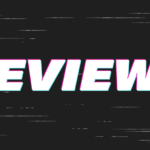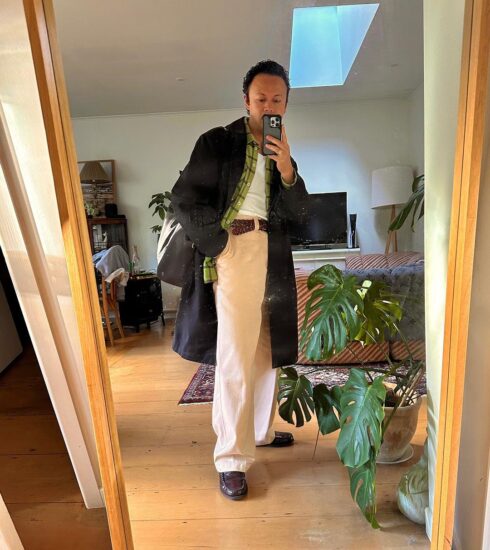Alexander Gillespie – Issue 8
Most would not think twice at the mention of another Law Professor in another office in the Law Faculty. However, Alexander Gillespie (Al as preferred) is an interesting man with an interesting mind. In this interview, Al comments on extremist ideologies baked into every facet on the planet and why that is.
Nexus: Is there a global trend toward white supremacy at the moment?
Gillespie: It’s always been there. The big debate isn’t so much whether it’s a trend – it’s whether we’re becoming much more aware of an underlying problem and then you start to look for what you find. And so there’s certainly a change in terms of the global picture, it’s a minority as a threat risk but it’s a growing minority, it’s a growing area. You’ve still got a problem with religious extremism, nationalist extremism, left-wing extremism. But this other one is there and it’s growing. Part of the problem is that it’s harder to count than other types of extremism because often to be a terrorist you need to have an ideology. You need to have a manifesto – you write down what you do whereas a lot of the mass shootings that you see in America don’t have one. And if they don’t do a manifesto then you can’t actually classify it as terrorism. And so it’s possibly being under-reported because sometimes what you’re seeing could well be terrorism if they left a manifesto. Like the recent shooting in America last week, the terrorist goes in and shoots four sikh people with no manifesto – does that mean it is an act of terrorism or does it mean it’s a mass shooting? And so to answer your question, it has always been there but we’re becoming more aware of it and it’s difficult to categorise. In New Zealand it’s definitely changed, it’s now 50% of the focus of the Security Intelligence Service (SIS) which is much more than it was in the past.
Nexus: What role has the internet played in making these fringe ideas more mainstream and accepted?
Gillespie: I don’t know if the internet has made it more accepted but it’s made them more accessible. It’s the power of people to do their own investigations and find whatever they want to support their views that is much greater than it used to be. There was a time when you could control, through censorship, what you could and could not say or what they could not read and you can’t do that anywhere near the same degree anymore. Young people, in particular, seem very good at finding the dark web if you say there’s one out there – they are going to find what’s on it straight away. In the past, it was easier to control what people were accessing. It’s still watched but you can’t control it like you used to.
Nexus: How was a political figure like Donald Trump able to capitalise on conspiracy theories like QAnon?
Gillespie: The thing about Trump is that he actually is a remarkably clever person. He would often say things but not to the point of them being incitement to a riot but he would lead you up to the point, just one step away from it. He would use ambiguity and misunderstandings to further his own political views without taking that extra step the whole time. He did it for four years. He would use these things for his own political purpose with great skill.
Nexus: When Trump used phrases like “I don’t know much about the movement, other than I understand they like me very much, which I appreciate”, “good people on both sides”, or “stand down and stand by” with the proud boys in the debate – are they conscious political dog whistles?
Gillespie: I think so. I think this is part of his intelligence – they were very conscious dog whistles. The other thing though is that not only were they conscious but they were very effective so part of the challenge we’ve got now isn’t what happened with Trump in the past, it’s what happens with Trump or whoever replaces him in the future. 70 million people voted for Trump, he was within a whisker of actually regaining the presidency. So we tend to see the extremists on both ends but it’s the middle ground that he has a large amount of support and that’s going to be a real challenge going forward. Trump, in my opinion, knew exactly what he was doing.
Nexus: Staying in America, the likes of Marjorie Taylor-Green, Jim Jordan, and Matt Gaetz have also spoken in support of some of the fringe elements using phrases that might trigger these conspiracy theorists. Is this the new reality for American politics?
Gillespie: I think it’s a new reality for all politics. I’m a strong believer in freedom of speech and the responsibility of all of us to engage but people now pick and choose the arguments that they want. Often people defend things that can be really problematic without a willingness to engage in what they’re actually saying. There is a huge confirmation bias.
Nexus: How many times do these QAnon people have to be wrong before they give up the game? Every month it seems CNN is telling us that QAnon is posting that “today is the day that Biden will be arrested and Trump will be inaugurated.” Is this just another phenomenon with seemingly no end in sight?
Gillespie: I don’t know if you’ve yet come across anyone who is a devout conspiracy theorist but it’s like talking to someone in a completely different language. Even though you can show them that it is wrong, they’ll still believe that it is right. It’s like a mindset that is so difficult to engage with. They reinforce each other and are given their own echo chamber. They are increasingly difficult to confront but my argument is that as tiresome as it is we’ve got to keep confronting them. You’ve got to keep saying “that’s not right” or “that is wrong” or “that is racist” because what they’re competing for is the middle ground that we’re all seemingly fighting for right now. They’re becoming very good at their argument but it’s the responsibility of the scholars in particular and the academics and the specialists to go forward. Whether you’re talking about politics, science, vaccines, people have to become more engaged. The fewer people become engaged the more space the conspiracy theorists will capture.
Nexus: How much Kool-Aid do you have to drink to storm the Capitol?
Gillespie:I reflect a lot on what happened when the Capitol was stormed. At the time it was almost unbelievable that this was happening in America. It’s one of those things, had it gone a little bit different and actually captured Pence, I believe he would have been strung up. In some ways, it was a wake-up call but in other ways, it was a real lucky escape because it could’ve turned much nastier. And then these things also create their own momentum, if people had seen that they succeeded then more people could have come to their ranks so we were lucky. How much Kool-Aid? A lot of Kool-Aid. But some people want to believe that there are conspiracies out there. That they are victims and that they have a privileged position to be protected, they sincerely believe it too.
Nexus: Do you think it has to do with a feeling of belonging?
Gillespie: Identity – I think it is fragmenting. Identity in the 21st century is much more complex than it was in the 20th and certainly the 19th. Certain groups are becoming disenfranchised and they find it harder to try to reconcile their own power and position in today’s world compared to what it was and they can see that they’re losing because they are. You need to be concerned about the interest of everyone but a lot of people are alienated and lost. You often find that with particular white groups.
Nexus: Why is it then you think people are alienated?
Gillespie: Education has a lot to do with it. The ability to compete in the market place and get good jobs. Also the ability to integrate or not with their neighbours. Some people just live in fear of those who are different rather than put their hand across the fence and shake hands and realise how similar we all are. Some people just look at each other and just think that others are coming in and taking things from them but it is much bigger than that.
Nexus: One of the most alarming trends seems to be how small the world is getting where previously things may have been limited to America. Brenton Tarrant, the Australian nationalist allegedly responsible for the Christchurch shooting, did he echo similar phrases that Trump himself had used?
Gillespie: I haven’t read the manifesto and I won’t read it. I think he picked up on a theme of racism and Islamophobia that that was a common theme. The actions you show by the likes of Trump and others, they wouldn’t say it in a way that is directly racist, they’d give an indirect nod to proving it. Don’t get me wrong, Trumps not going to say the massacre in Christchurch was justifiable but you create a context in which there is a willingness to be critical of other cultures much more than we should be. But sometimes it’s alright to be critical of other cultures as well – everything is about balance.
Nexus: In 2019, you described the Christchurch Terror Attack as completely foreseeable. Prior to that, you had stated that New Zealand could see another Aramoana. What were the warning signs and how do we prevent them moving forward?
Gillespie: Those words came back to haunt me because the reasons it was foreseeable was because of the platform we had, the firearms, was a completely liberal firearm regime whereby anyone who was alienated and disenfranchised could go out and get hold of high power weaponry and convert it into something that should be restricted. That’s exactly what Tarrant did. I think what you saw with Tarrant is that there was a wave coming towards it. Kiwis wanted to believe that this wave was happening overseas, where you could see through the eyes of the mass shooting and see through the eyes of the right that it wasn’t going to happen here. And kiwis often do this, we tend to think we’re immune to international trends when in fact we’re often just the last part of the wave that gets hit. Unfortunately, when it did come we were so exposed and it was so bad. I do worry there will be another one. That there is still a lot of weaponry out there in the community and still a lot of angry people. The problem is that it’s not what we can see, it’s what we can’t see. While the police are doing great work and the SAS is doing great work, someone like Tarrant was effectively invisible and impossible to stop. I do worry that there are others out there like him.
Nexus: Can you see a pattern in society for when these events could happen?
Gillespie: There is a pattern and the pattern often has to do with who’s in political power. In American with Biden in power, you’re often going to see more shootings and terror attacks of the extreme right against the left-wing than the other way around. In New Zealand, it’s hard because of the information we’re getting when there has been near terror attacks like saying someone at high school has got all the weaponry, a manifesto, and a plan, we often don’t see how close we were to previous attacks. It’s hard to predict what will be the next one. The biggest defence against an attack is in creating community. Until we’re at a point where people don’t feel scared of their neighbours and are much more inclusive and cosmopolitan is the best thing we can do to make ourselves feel safer. Everyone is looking for a silver bullet but often a simple thing is just being a good neighbour.
Nexus: How dangerous are some of New Zealand’s non-nationalist fringe groups, the anti-vaxxers, the anti-fluoriders, and whatever the 5G weirdos call themselves?
Gillespie: It depends on who you engage with. Within every group, there’s a spectrum. If you take one issue like 1080, some of their protests are pretty violent. You talk to some of the DOC workers who are at the forefront of those threats and it appears to be on the cusp of violence. In other instances with regards to people making threatening remarks towards muslims, some of the evidence suggests close to violence. Some of the times we’ve had young people arrested or detained who had access to firearms would appear close to violence. The risk is there and you see it in our status as a country. The SAS put out an annual report of where we are – we’re at medium risk so it’s quite possible.
Nexus: Finally, looking at the Trump model, and how successful others have used it over the decades, why did it fail to catch on outside of a small disaffected group when Jami-Lee Ross and Billy Te Kahika tried to tie 5G to freedom and ride that wave into parliament?
Gillespie: Part of the challenge here is that you and I talk to each other, we’re rational people and we know what evidence looks like so we know we have a debate. You’re not talking to these people. So, there’s a fringe group out there that is talking to itself and influential. Why didn’t it catch on? Kiwis are really good people. 99% of us are really smart people and we can actually work our way through common sense problems. I think, in some ways, it’s a victory scene for how small the support he got for that type of view. I don’t think that New Zealanders are as disaffected but that’s a continual response for everybody around us. We’ve all got to make sure our communities are educated, involved, and engaged. But having said that, kiwis can swing pretty right as well. Look at the Māori wards debate, what can seem like a real liberal community can all of a sudden become quite intolerant. It’s hard work but the challenge isn’t so much you and I talking, it’s talking to someone who’s not educated and being in their own little echo chamber. That is where it gets hard. So we’ve got to be continually vigilant to protect our values and who we are as a community.





